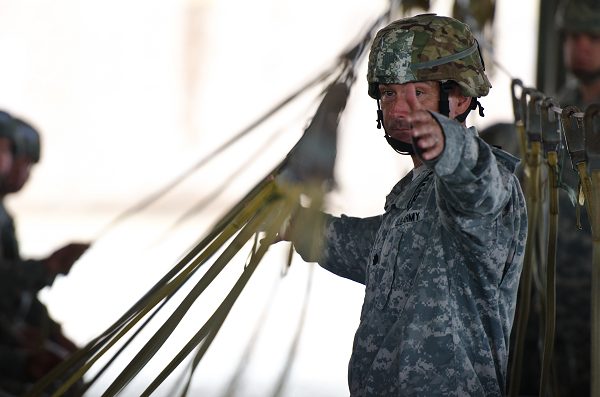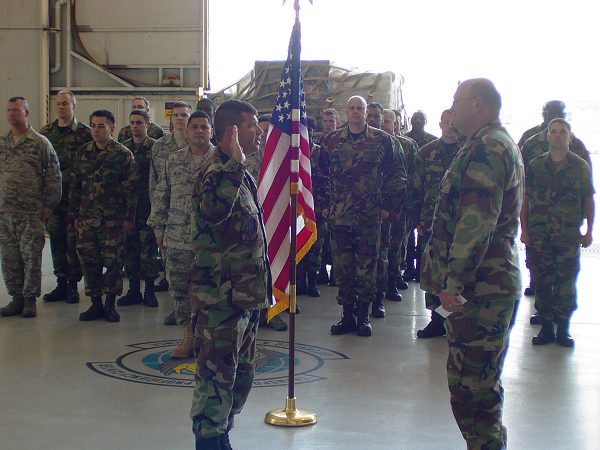Joining the military does not look the same for every recruit, and many people wonder what the differences are between Active Duty vs Reserves.
Every branch of the military has not only its Active Duty members, but they also have a reserve component.
The Reserves are under the same command as their Active Duty counterparts.
Also, it is essential to understand the difference between the two because the more you know, the better equipped you are to make a decision that matches your goals.
Jump To A Section
Difference #1: Civilian Jobs and Active Duty vs Reserves
Difference #2: Station Location in the and Active Duty vs Reserves
Difference #3: Pay on Active Duty vs Reserves
Difference #4: Daily Life in Active Duty vs Reserves
Difference #5: Service Commitment Length Active Duty vs Reserves
What Is Active Duty?

If you enlist in any branch of the military as an Active Duty member, you work for that branch of the military full time.
Also, you live on a military base, or very close to the base in which you are assigned.
Furthermore, as an Active Duty member, you may find yourself deployed at any time should the need arise.
What Are the Reserves?
Reserve units are under the command of their respective branch of the military.
The reason military branches have reserve units is to have qualified and trained personnel ready to enter Active Duty if needed.
One reason to activate a reserve unit is because of war.
Other times a reserve unit is called upon is to help during a natural disaster.
Also, a reserve unit might be activated to help in the state or even in other countries.
To remain trained, reserve members report to their reserve unit once a month and for two weeks each year for training drills.
Related Article – Military Reserves: Details on all 5 Branches of the Reserves
Difference #1: Civilian Jobs and Active Duty vs Reserves
If you are in the Reserves, you will likely have a civilian job.
Essentially your involvement and commitment to your reserve unit is a part-time commitment.
On the other hand, you still have a foot in the civilian world, and you will have the ability to obtain a full-time job.
However, if you are an Active Duty military member, your full-time job is your military job.
Therefore, you will not have a civilian job in this situation.
However, the military offers training related to your career, so the work you do in the military is beneficial to you when you do reenter as a civilian.
Difference #2: Station Location in the and Active Duty vs Reserves

Active Duty members of the military are stationed at bases located all over the United States and the world.
Also, there are times those serving Active Duty have no choice on duty station.
On the other hand, Reservists serve close to home.
However, if a Reservist receives a call for Active Duty, they may find themselves wherever the military needs them.
Related Article – 10 Benefits of Joining the Military After High School
Difference #3: Pay on Active Duty vs Reserves
For members of the military serving Active Duty, they receive a base salary plus benefits.
Base salary increases according to time spent in the military and their rank.
Also, they receive benefits such as retention bonuses, housing allowances, and health care, to name a few.
On the other hand, Reservists earn a salary based on the time spent at drill.
The pay also increases with years spent in the military and rank.
Furthermore, if Reservists are activated, they receive full-time pay.
Lastly, it is worth noting that Reservists have access to benefits such as health care and help to pay for college, as well.
Related Article – Commissioned Officer vs. Non-Commissioned Officer (NCO)
Difference #4: Daily Life in Active Duty vs Reserves
There is a significant difference in the daily lives of Active Duty and reservists who serve in the military.
Active Duty members live the military life every day.
For example, uniform inspections and regulations are a daily thought.
Active Duty can be demanding, especially during times of war.
Those who serve in the Reserves have a foot on both worlds.
For instance, during drill weekends and other training, reservists face the same regulations and expectations as their Active Duty counterparts.
However, the rest of the time, Reservists carry along with their civilian life.
For example, reservists go to their full-time job and enjoy their free time.
By comparison, those on Active Duty must request leave, which is vacation time, to be off of work.
Related Article – Joining the Military After College
Difference #5: Service Commitment Length Active Duty vs Reserves

The different branches of the military have various service commitments.
Also, service commitments vary due to bonuses and even job commitments.
Therefore, it is vital to make sure your contract reflects your expectations.
Often the first-time commitment might be four years of Active Duty followed by a period spent in Active Duty.
Also, many Active Duty members plan to shift to reserve status at some point in their careers.
Some members fulfill their Active Duty contract, while others request an early release.
As for those who join the Reserves under any of the military branches, the term is for six years of reserve status followed by two years of in Active Duty.
Related Article – How to Switch from Reserves to Active Duty
Conclusion
There are many reasons to serve in the military.
However, the branch you chose, and your status depends on your needs and goals.
For some, Active Duty is the best choice because it has full benefits and pay.
Also, active service means you have a full-time job.
However, some members wish to have more flexibility.
Therefore, serving as a Reservist may be a better choice.
Reservists maintain a civilian life with a full-time job while earning part-time pay in the military.
Also, many members cap off their military service by starting out as Active Duty then switching to the Reserves.
Either way, the decision to serve is a respectable choice.
References:
- Replacing Dog Tags: 6 Things You Need to Know - June 28, 2024
- Navy OAR Test Study Guide - June 24, 2024
- 10 Best Sniper Movies of all Time - June 20, 2024
Originally posted on August 9, 2020 @ 3:11 pm
Affiliate Disclosure: This post may contain affiliate links. If you click and purchase, I may receive a small commission at no extra cost to you. I only recommend products I have personally vetted. Learn more.

